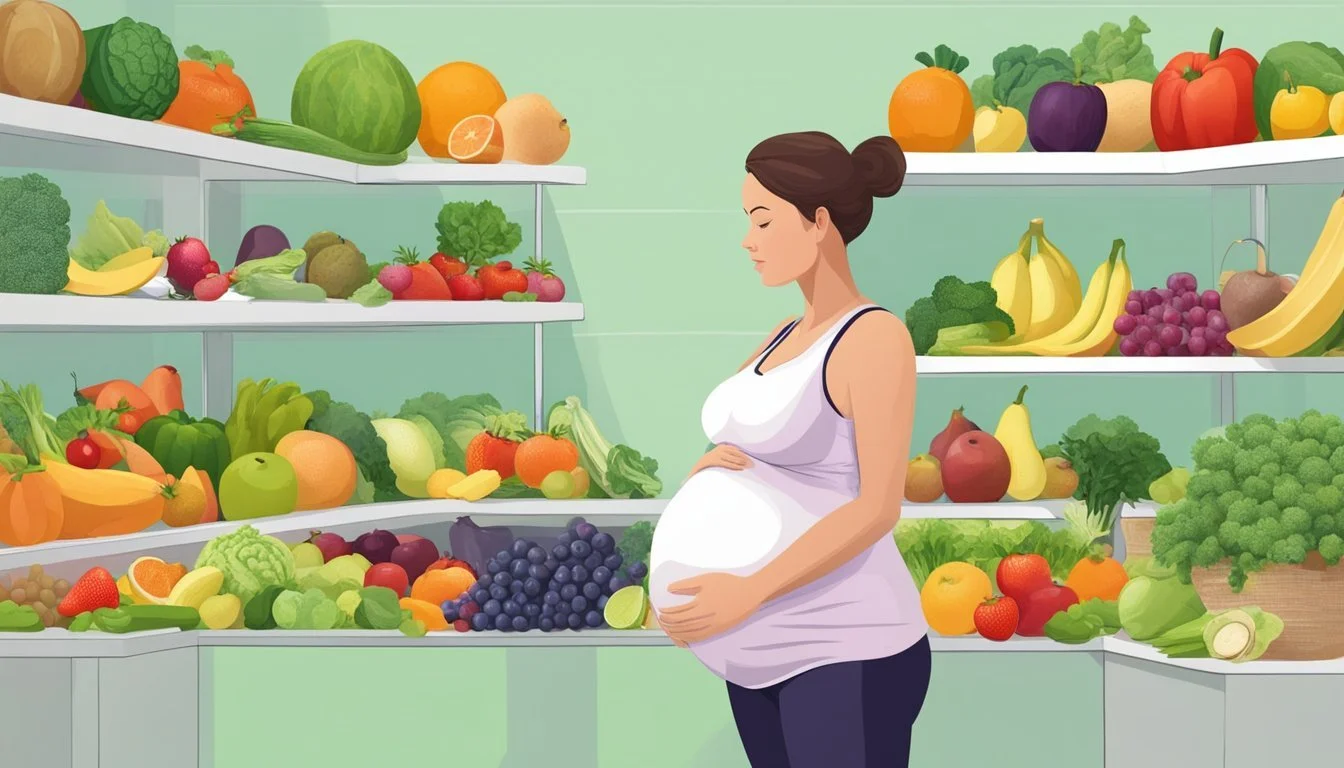Is it Safe to Follow the Raw Food Diet While Pregnant?
Understanding the Risks and Benefits
When it comes to diet during pregnancy, safety is paramount. The raw food diet, which consists primarily of unprocessed and uncooked plant foods, can present certain risks when not managed carefully. Pregnant individuals need to consider the potential for foodborne illnesses, nutritional deficiencies, and the health of their developing fetus before committing to any dietary regimen.
The consumption of raw foods among pregnant people raises important safety concerns. Raw or undercooked meats, for instance, are strictly discouraged due to the threat of infections like E. coli and toxoplasmosis, which can impact fetal health. Similarly, unpasteurized dairy and juice can harbor harmful bacteria that are particularly risky during pregnancy.
Nutritional balance is also a critical factor. While the raw food diet can offer an abundance of vitamins and minerals from fruits and vegetables, pregnant individuals require a range of nutrients that may be compromised with a strict raw diet. Essential components like iron, protein, folate, and other B vitamins must be consistently monitored to support fetal development and maternal health.
Understanding the Raw Food Diet
The Raw Food Diet focuses on consuming unprocessed, uncooked plant foods. It is thought that heating food can destroy its nutrients and natural enzymes. Before delving into the specifics, it's crucial to weigh the potential benefits and risks of following this diet during pregnancy, as well as to understand the key nutrients involved and their sources.
Benefits and Risks of Raw Foods During Pregnancy
Consuming a diet rich in raw foods provides an abundance of vitamins and minerals, along with phytochemicals that may protect against certain diseases. However, for pregnant individuals, this diet poses several risks. Raw foods, though nutrient-dense, can come with an increased risk of foodborne illnesses, which are particularly dangerous during pregnancy.
Benefits:
High fiber content aids in digestion.
Abundance of natural vitamins, minerals, and phytochemicals.
Risks:
Potential exposure to foodborne pathogens.
Possible deficiency in essential nutrients like protein, B12, iron, and calcium, which are vital for fetal development.
Key Nutrients and Their Sources
A balanced intake of key nutrients is essential for the health of both the mother and the baby.
Protein: Necessary for fetal tissue development, including the brain. Sources: Spirulina, chia seeds, hemp seeds, nuts, and sprouted legumes.
Calcium: Important for the development of bones and teeth. Sources: Green leafy vegetables, almonds, and fortified plant milks.
Iron: Crucial for the formation of hemoglobin, which transports oxygen in the blood. Sources: Spinach, lentils, and beetroots.
Vitamin B12: Vital for the development of the nervous system. Sources: Typically challenging to obtain from a raw plant-based diet and may require supplementation.
Folate: Supports neural tube development and reduces the risk of certain birth defects. Sources: Dark green vegetables, citrus fruits, and legumes.
Maintaining a steady supply of these nutrients requires careful planning when adhering to a raw food diet during pregnancy.
Safety Concerns and Preventive Measures
When considering the raw food diet during pregnancy, it is vital to understand the risks associated with foodborne illnesses and the importance of monitoring food temperatures. Pregnant women have to be attentive to their diet as their immune system changes can make them more susceptible to infections.
Risks of Foodborne Illnesses
Pregnant individuals need to be highly cautious about foodborne pathogens such as Listeria, Salmonella, E. coli, and Toxoplasma gondii. These pathogens can lead to serious health issues like miscarriage, stillbirth, or congenital problems like toxoplasmosis, which can affect the fetus even without visible symptoms in the mother. Foods commonly found in a raw food diet, such as unpasteurized dairy, uncooked meats, and unwashed produce, can potentially harbor these organisms.
Listeria: Can cross the placenta and may result in infection or blood poisoning in the fetus.
Salmonella: Often found in raw or undercooked eggs, it can cause severe gastroenteritis.
E. coli: Found in contaminated produce or water, can lead to severe renal complications.
Toxoplasmosis: Caused by a parasite present in raw or undercooked meat and cat feces; can lead to birth defects.
Importance of Food Temperature Control
Managing food temperatures is crucial in preventing the growth of harmful bacteria. It is recommended to avoid raw or undercooked meats and to meticulously wash all fruits and vegetables. Certain raw foods are inherently risky and require careful handling:
Maintain perishables at or below 40°F (4°C) and cooked foods at or above 140°F (60°C).
Use a food thermometer to verify temperatures.
Avoid cross-contamination by using separate cutting boards and utensils for raw and cooked foods.
Following these temperature controls can significantly decrease the risk of infection and protect both expectant mothers and their unborn children from foodborne diseases.
Nutritional Needs During Pregnancy
During pregnancy, the body demands more nutrients to support the growing fetus. Pregnant individuals should ensure that they are getting the right balance of macronutrients, essential vitamins, and minerals, and maintaining proper hydration to meet the increased nutritional requirements.
Macronutrients: Protein, Fats, and Carbohydrates
Protein is crucial for the development of the baby, and pregnant individuals should aim for 70-100 grams per day. Sources of protein include lean meats, poultry, fish, beans, and tofu. Fats are important for fetal growth, especially omega-3 fatty acids found in fish like salmon. A balanced intake of monounsaturated and polyunsaturated fats is recommended. Carbohydrates provide energy, and choices such as whole grains, fruits, and vegetables also offer fiber, which can help prevent constipation.
Essential Vitamins and Minerals
Folic Acid: Essential for preventing neural tube defects, the recommended dose is around 600 micrograms (mcg) per day. Sources include leafy green vegetables and citrus fruits.
Iron: Required to supply oxygen to the baby, with a recommended intake of 27 mg per day to prevent anemia. Iron-rich foods include red meat, poultry, lentils, and fortified cereals.
Calcium: Necessary for the development of strong bones and teeth, with recommendations of about 1,000 mg per day. Dairy products, broccoli, and kale are good sources.
Vitamins A & D: Important for immune function and bone health, respectively. Vitamin A can be found in sweet potatoes and carrots, while vitamin D can be absorbed from sunlight and found in fortified milk and fatty fish.
Hydration and Fluid Intake
Aiming for approximately 2.3 liters (about 8 cups) of water daily is important for maintaining healthy amniotic fluid levels and for aiding digestion. Additional fluids can come from milk, 100% fruit juice, and herbal teas, but pregnant individuals should be cautious with caffeine intake, limiting it to less than 200 mg per day.
Foods to Embrace and Avoid
When pregnant, it's crucial to prioritize foods that provide vital nutrients and avoid those that pose a risk to the mother and the developing fetus.
Recommended Raw Foods for Pregnant Women
Pregnant women should incorporate a variety of fruits and vegetables in their raw food diet due to their high vitamin and mineral content. These include:
Leafy greens like spinach and kale, rich in folate, which is essential for fetal development.
A diverse range of berries—such as strawberries, blueberries, and raspberries—for antioxidants.
Consumption of nuts like almonds and walnuts is encouraged for their healthy fats and protein, critical for the baby's growth.
Table 1: Recommended Raw Foods
Food Group Examples Nutrients Provided Vegetables Bell peppers, carrots, cucumbers Vitamins A, C, and fiber Fruits Apples, pears, bananas Essential vitamins, fiber Leafy Greens Spinach, kale, arugula Folate, iron, calcium Berries Strawberries, blueberries, raspberries Antioxidants, vitamins Nuts Almonds, walnuts, cashews Healthy fats, protein
Unsafe Raw Foods and Alternatives
Certain raw foods can be harmful during pregnancy due to the risk of foodborne illnesses, which are dangerous for the unborn baby. These include:
Raw meat and shellfish, which may contain harmful bacteria and viruses.
Unpasteurized milk and soft cheeses can harbor Listeria, causing severe infection.
To reduce the risk of mercury exposure, pregnant women should avoid high-mercury fish such as shark, swordfish, and king mackerel. As a safer alternative, they can opt for low-mercury fish like salmon and trout, ensuring it is properly cooked or pasteurized.
Table 2: Unsafe Raw Foods and Alternatives
Unsafe Food Risk Safer Alternatives Raw meat Bacterial/viral infections Cooked lean meats, plant-based proteins Raw shellfish Seafood-borne illnesses Cooked fish low in mercury Unpasteurized milk Listeria infection Pasteurized milk and dairy products Soft cheeses Listeria infection Hard cheeses, pasteurized varieties High-mercury fish Mercury exposure Low-mercury fish, thoroughly cooked
Note: For any raw food consideration during pregnancy, consulting a healthcare provider is recommended.
Managing Dietary Restrictions
When following a raw food diet during pregnancy, one must carefully manage dietary exclusions to ensure both mother and child receive all necessary nutrients. This involves identifying suitable substitutes for commonly excluded items and maintaining a balanced diet within the raw food framework.
Substitutes for Common Raw Diet Exclusions
Dairy Products: While traditional dairy is often excluded on a raw food diet, pregnant women can obtain essential calcium and Vitamin D from raw, unpasteurized dairy if it's safe and available. Otherwise, fortified almond or coconut milk can be viable substitutes. Including a suitable prenatal vitamin that has calcium and Vitamin D can help fill in any nutritional gaps.
Protein Sources: Beans, which are typically consumed cooked, are a key source of protein and iron in a diet. Raw food enthusiasts can look to alternatives such as sprouted lentils or chickpeas to include in their meals. Nut butters, such as almond or cashew, can also provide protein while fitting into a raw diet framework.
Balancing a Healthy Diet with Dietary Limitations
For a pregnant woman on a raw food diet, balancing a healthy eating plan is crucial to support fetal development. Beans and other legumes, when sprouted, provide not only protein but also other vital nutrients necessary during pregnancy. Integrating a variety of fruits, vegetables, nuts, and seeds ensures a balanced diet, encompassing all the food groups.
To optimize maternal and fetal health, pregnant women should ensure their diet includes:
Sufficient caloric intake from a blend of fruits, vegetables, and nuts.
A comprehensive range of vitamins and minerals, especially folate, iron, calcium, and vitamin B12, often found in a prescribed prenatal vitamin.
Healthy fats, critical for fetal development, which can be sourced from avocados, nuts, and seeds within a raw diet.
Maintaining this balance facilitates healthy eating practices that cater to the unique needs of pregnancy, while adhering to the dietary restrictions of a raw food lifestyle.
Potential Complications from Raw Foods
When considering a raw food diet during pregnancy, it is essential to understand the potential risks. Two primary concerns stand out: nutritional deficiencies and the effects of foodborne illnesses. These can have serious implications for both the mother and the developing fetus.
Impact of Nutritional Deficiencies
Pregnant women require a balanced diet that provides sufficient nutrients for fetal development. A raw food diet may result in:
Vitamin B12 deficiency: This vitamin is critical for the prevention of neural tube defects and is minimally available in raw plant foods.
Calcium and Vitamin D shortage: These are pivotal for the development of the baby's bones and may be deficient if raw food excludes dairy.
Insufficient protein intake: Adequate protein is essential for the growth of fetal tissue, including the brain.
Iron deficiency: Iron is necessary to prevent miscarriage and low birth weight, and it might not be adequately obtained from a raw food diet alone.
Effects of Foodborne Illness on Pregnancy
Raw foods, especially when not handled properly, can increase exposure to pathogens. Some of the potential risks include:
Listeriosis: Pregnant women are particularly susceptible to listeria infections, which can cause miscarriage, stillbirth, or severe infection in the newborn.
Various infections: Raw or undercooked food can harbor bacteria, viruses, or parasites that might lead to infections, some of which could result in birth defects or even fetal death.
Higher risk for brain damage: Consuming raw or contaminated substances during pregnancy could potentially expose the fetus to toxins that can lead to brain damage.
It is important for expectant mothers to consult healthcare professionals before making any dietary changes to ensure the health and safety of both themselves and their babies.
Dietary Recommendations for Pregnant Women
When pregnant, it is essential that dietary choices support both the mother's health and the developing fetus. A well-balanced diet tailored to the nutritional demands of pregnancy can aid in optimal fetal development and maternal well-being.
Consultation with Healthcare Providers
Every pregnancy is unique, and consultation with healthcare providers is crucial to ensure the individual dietary needs are met. Healthcare providers can assist in determining the appropriate weight gain and necessary prenatal vitamins. They are also equipped to advise on a safe consumption level of raw foods during pregnancy to avoid any risks that can potentially affect the placenta and overall fetal development.
Customizing the Raw Food Diet for Pregnancy
Following a raw food diet during pregnancy needs careful customization to provide adequate nutrition. Certain raw foods should be avoided or limited due to potential health risks.
Limit caffeine intake to less than 200 milligrams per day.
Ensure all meat and poultry are cooked to a safe internal temperature (e.g., poultry to 165°F).
Vegetables and fruits should be thoroughly washed and, if possible, cooked.
Avoid unpasteurized juice or cider; if consumed, bring to a rolling boil for at least 1 minute before drinking.
Crucial elements of the diet should include the following:
Protein sources such as cooked meats, poultry, and fish to support fetal development.
Sufficient calories from balanced sources, including whole grains and cooked vegetables.
Iron and B vitamins are vital, which come from various cooked protein options.
Post-Pregnancy and Breastfeeding Considerations
Nutritional needs change post-pregnancy, especially if breastfeeding. An additional 300 calories are typically needed per day during lactation. The food consumed must continue to support the mother's health and provide essential nutrients through breast milk. Continuing a modified raw food diet can be done under guidance to ensure sufficient caloric intake and balance of nutrients such as protein, fats, and carbohydrates are maintained.







